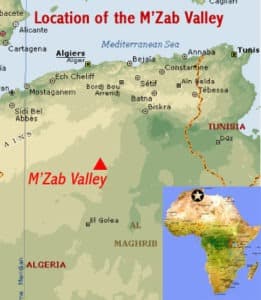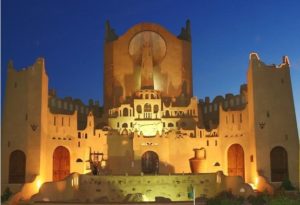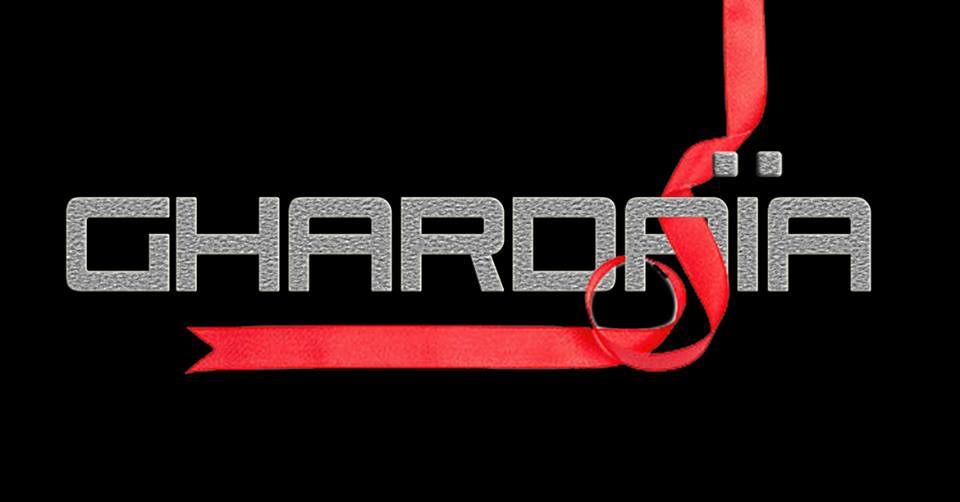
By Amazigh World Congress Communique, Ait M’zab, known as the Mozabite community, is one of the groups comprising the Amazigh people, which settled manycenturies ago… in the valley of the M’zab river, about 600 km south of Algiers. The Mozabite community, comprising some 300,000 people, in general follows the Muslim faith of the Ibadi rite (very much a minority rite in Algeria) and is very attached to its unique religious and ancestral traditions. The Ait M’zab make a living from their crafts, trade, and oasis subsistence agriculture. According to the Algerian administrative system, the M’zab is a Wilaya (department or province) whose capital city is Taghardayt (Ghardaia in Arabic), and the other main towns are AtIsjen (BeniIsguen), Bunur (Bounoura), Mlishet (Melika), Tajnint (ElAteuf), Bergan (Berrianne), Zagrara (Guerrara). The M’zab belongs to the Saharan area with a desert climate and an area of some 32,000 square km. Taghardayt is included in the UNESCO Heritage List…
“Some nomadic Arab tribes, called Chaamba, who live by pastoralism, have long used the M’zab lands to graze their flocks. In time, some of these tribes settled down and founded the town of Metlili, which eventually became an urban center of about 40,000 inhabitants. However, the Chaamba also settled within and around the Mozabite cities. The Chaamba are Arabs of BaniSuleyem [an Arab tribe that migrated to North Africa from Nejd and Hejaz in Saudi Arabia] descent; they are Sunni Muslims, of the Maliki rite (the official majority in Algeria) and have their own cultural and social practices. Consequently, the Chaamba and Mozabite communities have distinct differences on the religious, linguistic, cultural and way of life levels.
“After a long period of more or less peaceful relations characterized by intense commercial interaction, in the last 30 years violent

conflicts have emerged between the Arab Chaambas and the Mozabites, particularly during the last 10 years, in which some died and hundreds were injured, and property belonging primarily to the Mozabites was destroyed. These outbreaks of violence reached their peak in 2013, when violent clashes recurred frequently throughout the year. According to journalists visiting the region, and also according to the testimony of many citizens and human rights advocates, there is no doubt that the Arab Chaambas, encouraged and supported by the Algerian police, have attacked [the Mozabites], while the Mozambites only tried to defend and protect themselves. “However, the most serious fact, as reported by independent observers and supported by numerous videos and photos, is that the Algerian police are deliberately siding with the Arab Chaamba community when attacks on Mozabite property and persons take place. Groups of young Chambaas have wrecked, pillaged and set fire to shops belonging toMozabites, and have torched vehicles, in the presence of police forces – who at the same time were firing rubber bullets and throwing gas canisters exclusively at the Mozabite population. The Algerian police also used torture as well as cruel, inhuman, and degrading acts against Mozabites, very large numbers of whom were arrested arbitrarily. “This is what was denounced by human rights organizations including the Algerian League for the Defense of Human Rights (LADDH). In a communiqué of November 25, 2013, LADDH stated that ‘the people [Mozabites] who were arrested and later released talked about inhumane practices from a previous era, and accused police of violently beating them, completely undressing them, pouring cold water on them, and standing them in front of an air conditioner.’ “In a subsequent communiqué, dated December 29, 2013, LADDH ‘strongly denounces the scandalous conduct of the police, who are supposed to represent a republican institution and who [instead] uses inhuman and degrading practices.’ Following a visit to the M’zab region, a number of MPs from the Front of Socialist Forces (FFS) [social democratic and secularist political party, mainly supported by Kabyles in Algeria] presented this case to the National Assembly on December 4, 2013 and [talked about] ‘torture’ practiced by ‘those who are supposed to enforce the law,’ meaning the Algerian police. They also denounced the ‘racist’ attitude of the police services that sided with the Chaamba community in order to attack the Mozabite community.… “In any case, the mistreatment inflicted upon Mozabite citizens constitutes a serious violation of human rights, and the police authorities’ biased behavior in favor of the Arab Chaambas is just one more piece of evidence of the Algerian state’s racist attitude towards the Mozabites, and towards the Amazigh in general.
Besides, for many years now, Algerian authorities have been seizing Mozabite collective lands and sometimes even private lands, reassigning them to the Chaamba community or using them for building social housing projects for the Arab Chaambas or others from other areas of Algeria. “This was stated by human rights advocate Kamel Fekhar,who denounced ‘the appropriation of Mozabite lands’ and who reports that ‘presently, whole Arab neighborhoods are being built over Mozabite lands.’ Citing instances of the Algerian administration’s expropriation of private lands belonging to Mozabites, he claims that the lands ‘were nationalized without any compensation [to the Mozabite owners] and, ultimately, some housing schemes were built on these lands aimed at accommodating Arabs who had come from afar.’ “According to this human rights advocate, ‘it exists a State policy aimed at wiping off the Mozabite identity’. In fact, ever since the 1970s, the Algerian government has been trying to establish Arab populations in the heart of the cities of the M’zab, with the evident intent of deconstructing the Mozabite society in order to facilitate its destruction. “It is also important to notice that the Algerian government rejects, without explicitly saying it, the Muslim Ibadi rite, which is practiced by the Mozabites or any other form of Islam different from the Sunni Maliki. On May 20 2013, Bouabdallah Ghlamallah, Algerian minister of religious affairs, insisted, in his closing address on the occasion a national symposium on religious issue, that ‘the Maliki rite is nothing else, but the religious frame of reference of our country and we do not accept that this framework be touched’. This intolerant position towards different forms of Islam was subsequently relayed in the mosques though heinous speeches delivered by officials appointed by the State. This is very discriminatory and violates the freedom of conscience, which is contemplated by the Algerian constitution and by the different international agreements concerning human rights.
“Aware of the looming threats to their lives because of the singularity of their community, and convinced of their rights to follow and preserve their cultural traditions and customs, in 2009 some Mozabite representatives asked the government for official recognition of their community’s sociocultural and religious (Ibadi rite) uniqueness, and for juridical protection for it – but so far there has been no response. Since Algeria is… ‘Arab, Islamic and Sunni Maliki,’ it follows that everything that deviates from this definition is discriminated against, excluded, and fought. This is what is happening to the Mozabites, because they are Amazighs and Ibadi Muslims. “Consequently, the Amazigh World Congress has strongly denounced the crimes and the aggressions against the Mozabite community, as well as the discrimination against and the violations of the rights of the Mozabites, and has demanded from the Algerian government:
*- The immediate creation, with the agreement of the legitimate representatives of the Mozabite community, of an independent commission of inquiry to investigate the violence perpetrated against the Mozabite community, particularly the torture and the inhuman and degrading mistreatment perpetrated against it.
*- The arrest and severe punishment of the Algerian police responsible for inciting to violence and for the torture and inhuman and degrading mistreatment [of Mozabites].
*- The arrest and the judicial prosecution of the perpetrators of these crimes and acts of violence against members of the Mozabite community. “ Just and adequate compensation for the owners of destroyed property.
*- The restitution or a just and adequate compensation for the collective lands and for the private lots which were arbitrarily taken from the Mozabites.
*- State recognition of the sociocultural, linguistic, and religious identity of the Mozabite community.
*- The state’s official end to all forms of racism and discrimination against Mozabites.…”
Source: Memri

